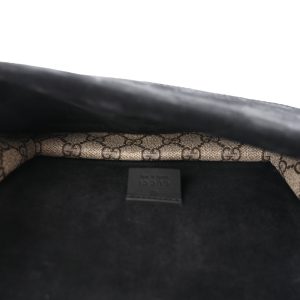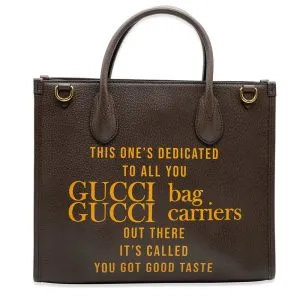In the world of luxury fashion, the term ‘replica’ often brings to mind a spectrum of emotions from delight to disdain. For some, owning a meticulously crafted imitation of a designer handbag is a way to indulge in style without breaking the bank, while for others, it’s a practice that skirts the edges of ethical consumerism and intellectual property rights. The debate over the place of 1:1 replica bags in the luxury market is multifaceted and impassioned, reflecting deeper attitudes towards fashion, status, and the market economy.
Understanding the Phenomenon of 1:1 Replica Bags
Replica bags, also known as “super fakes” or 1:1 replicas, are a niche within the replica market that focuses on ultra-high-quality imitations of designer handbags. These items are crafted to be almost indistinguishable from the originals, often using the same materials and skilled labor that goes into the production of the authentic bags. The appeal of 1:1 replicas lies in their ability to offer the opulence and exclusivity associated with luxury brands at a fraction of the price.
The Evolving Consumer Mindset
The consumer mindset around luxury goods has shifted with the rise of social media and the accessibility of online shopping. Consumers are more informed about the origins and production costs of the items they covet, often opting for more informed luxury purchasing that balances quality, ethical sourcing, and personal values.
A Response to Market Exclusivity
Luxury brands have historically maintained high price points for their exclusivity, often creating a chasm between the aspirational desire for their goods and the financial capacity of the majority. Replica bags, and specifically the 1:1 replicas, offer a bridge across that divide, granting accessibility to those who desire to partake in the luxury lifestyle without the luxury budget.
Ethical Dilemmas of Replica Purchasing
The debate over the ethics of replica purchasing is complex. On one hand, some argue that the sale of replicas acts as an equalizer in a market that some claim is intentionally exclusionary. Others argue that it undermines the integrity of luxury brands and devalues their intellectual property.
Consumer Perspectives
Consumers purchasing 1:1 replicas may do so for various reasons. For some, it’s about the craft and attention to detail that goes into making the item. For others, it’s a practical decision driven by the unattainable price points set by the original brands. Despite the allure of the replicas, there is a growing demographic of consumers who are uncomfortable with the ethical implications of purchasing fake goods, regardless of the reasons.
Impact on Brand Integrity
The integrity of luxury brands is a significant consideration when discussing replica purchasing. Some argue that brands need to assess their practices and pricing to remain competitive and relevant in the face of replica markets. Opponents of replicas assert that they devalue the craftsmanship and creative vision that is the foundation of luxury fashion.
Spotting the Difference: Identifying Authenticity
For those considering a replica purchase, the ability to identify authenticity is crucial. 1:1 replicas are known for their near-perfect resemblance to the original, but there are telltale signs that can differentiate the two.
Materials and Craftsmanship
One of the most critical factors in distinguishing an authentic from a replica is the quality of materials and craftsmanship. Authentic bags often use superior quality materials, with meticulous attention to detail in stitching, hardware, and the lining of the bag. While 1:1 replicas are designed to be identical, a discerning eye can often detect slight variations in the construction and materials used.
Brand Stamps and Serial Numbers
Luxury brands have unique stamps, serial numbers, and other identifying features that are difficult to replicate perfectly. Examining the interior and exterior of the bag, including the hardware and any accompanying dust bags or certificates, can reveal discrepancies in these details.
The Legal Landscape of Replica Goods
The sale and purchase of replica goods raise significant legal issues, including counterfeit laws and the enforcement of intellectual property rights. Luxury brands are invested in protecting their designs, logos, and trade dress from unauthorized use, which includes the creation and distribution of replica items.
Intellectual Property Rights and Enforcement
Intellectual property laws around the world vary, but in general, they offer protections for original designs and brand elements. Luxury brands employ legal teams to combat the replica market, pursuing legal strategies that include cease and desist orders, civil suits, and advocacy for stronger consumer protection laws.
Grey Markets and Global Supply Chains
The globalization of e-commerce has led to the expansion of grey markets, making it easier for consumers to access replica goods. The supply chains of these products are often complex and transnational, making enforcement of intellectual property laws challenging for luxury brands and authorities.
Forecasting the Future of Replica Bags
The luxury fashion industry is constantly evolving, and the role of 1:1 replica bags within it is likely to change as well. With advancements in technology, including 3D printing and artificial intelligence, the quality and availability of replicas are expected to increase, posing new challenges and opportunities for both brands and consumers.
Innovations in Replication Technology
Technological advancements are enabling the production of more convincing replicas. 3D printing and AI-driven design processes can now replicate fine details and textures with greater accuracy, blurring the lines between authentic and replica even further.
Impact on the Luxury Market
Luxury brands are re-evaluating their approaches to exclusivity and pricing in response to the persistence of the replica market. Some are considering more affordable product lines, limited editions, or subscription models to engage consumers who may be turning to replicas in the absence of other options.
A Replica by Any Other Name
The concept of a 1:1 replica bag is more than just a copy of a luxury item; it symbolizes the democratization of fashion and the desire for beauty and craftsmanship at an accessible price. However, it is also a point of contention that raises important questions about the value of authenticity and the economics of the luxury market.
Balancing Accessibility and Exclusivity
Replica bags offer a unique balance of accessibility and exclusivity. They provide a means for consumers to partake in the luxury lifestyle without compromising on the appearance or quality of the products they desire. However, they also present a challenge to the traditional business model of luxury brands, which rely on exclusivity to maintain high margins and perceived value.
The Lasting Appeal of Luxury Brands
Despite the allure of 1:1 replicas, luxury brands continue to hold a special place in the hearts of consumers. The heritage, storytelling, and aspirational qualities associated with these brands cannot be replicated, providing a unique value proposition that extends beyond the tangible product itself.
In conclusion, the debate over 1:1 replica bags in the luxury market is a nuanced one, reflecting broader shifts in consumer behavior, ethical considerations, and the rapidly changing landscape of fashion and technology. As we move into an era of increased transparency and access, the conversation around replicas will undoubtedly continue to evolve, shaping the direction of the luxury market for years to come.